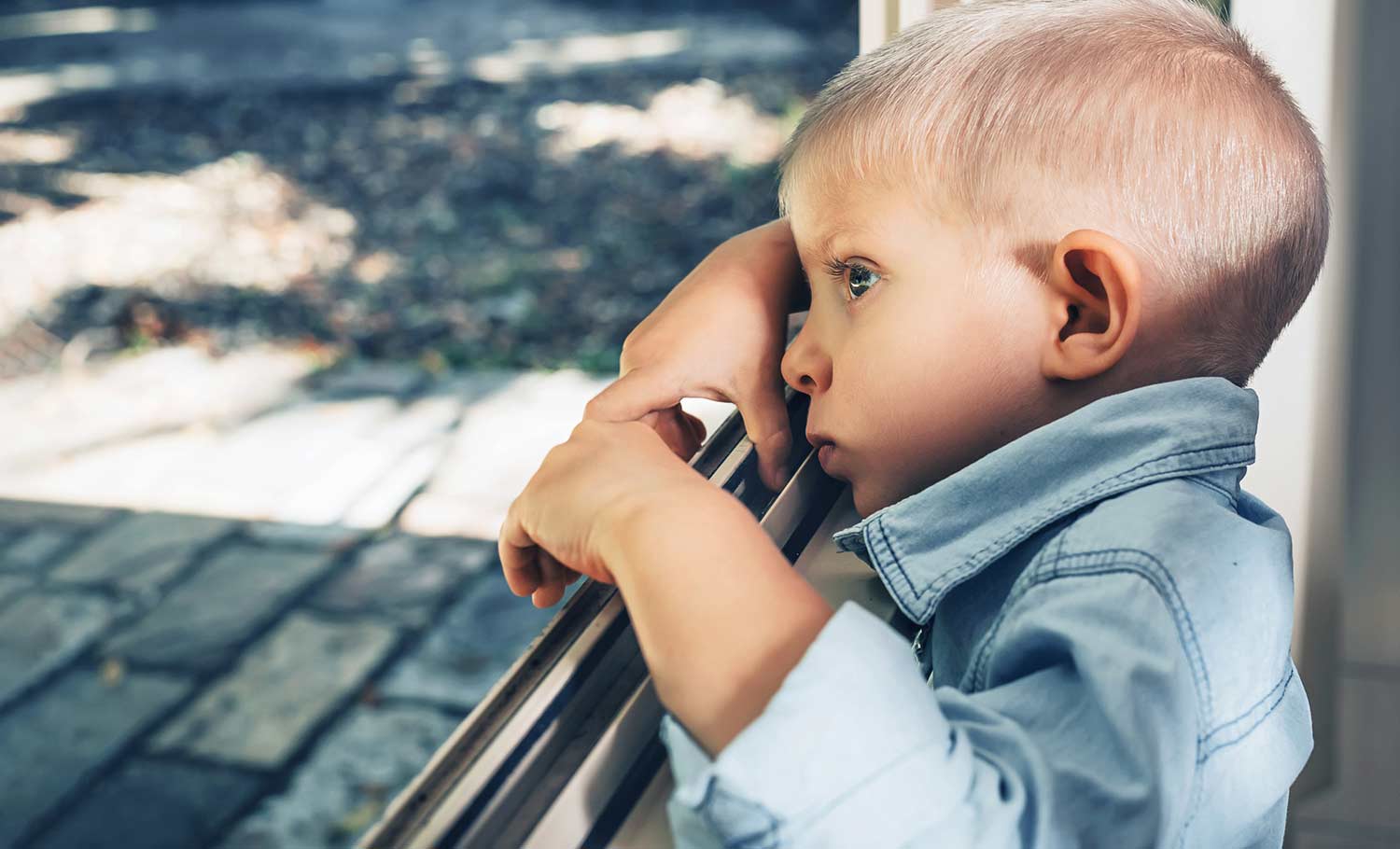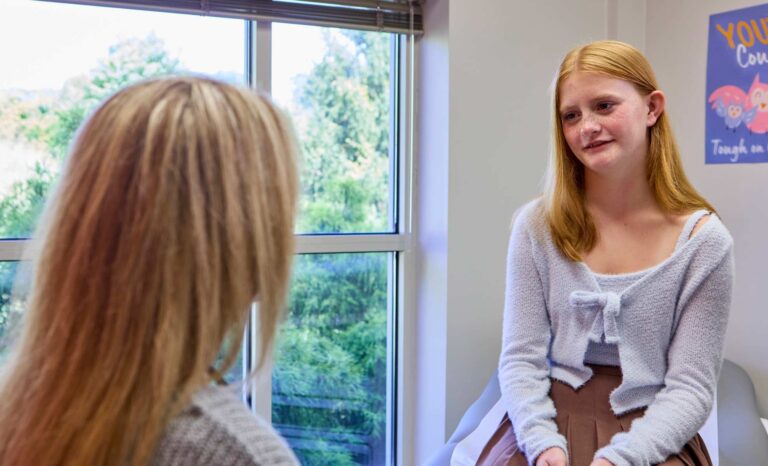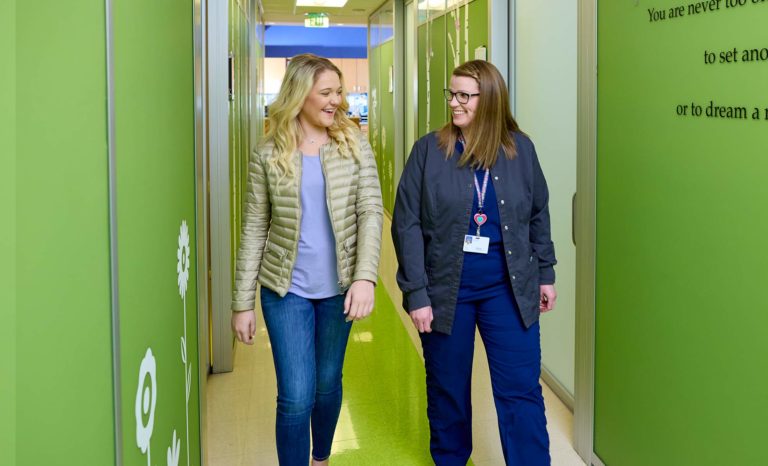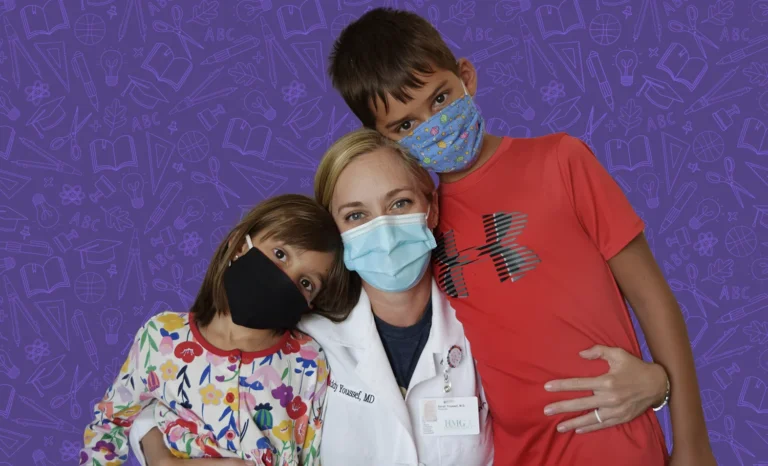So often, it starts with a chronic headache or stomachache, the kind painful enough for a parent to take their child to the emergency room for care. But the cause of the pain may not be a physical ailment. Instead, the mental pressures of the pandemic are taking a toll on children’s health.
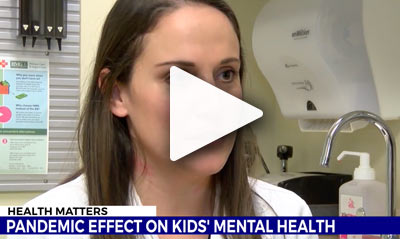 WJHL VIDEO: Danielle Street Stephens, DO – Pediatrician
WJHL VIDEO: Danielle Street Stephens, DO – Pediatrician
“Just as adults struggle with the emotions and social isolation of COVID-19, children and teens whose brains are still developing also need a little extra support during this time—especially those with preexisting mental health conditions,” says Danielle Street Stephens, DO, a pediatrician with Holston Medical Group (HMG).
The number of kids coming to the ED with mental health-related issues during the pandemic is rising—up 24% among children ages 5-11 and 31% among adolescents ages 12-17 in 2020. Even among children and teens who have never before shown signs of depression and anxiety, the stresses of the pandemic—from the abrupt disruptions to life as they knew it to fears about the coronavirus to sadness over the impact on school, friendships and family—stretched their ability to cope.
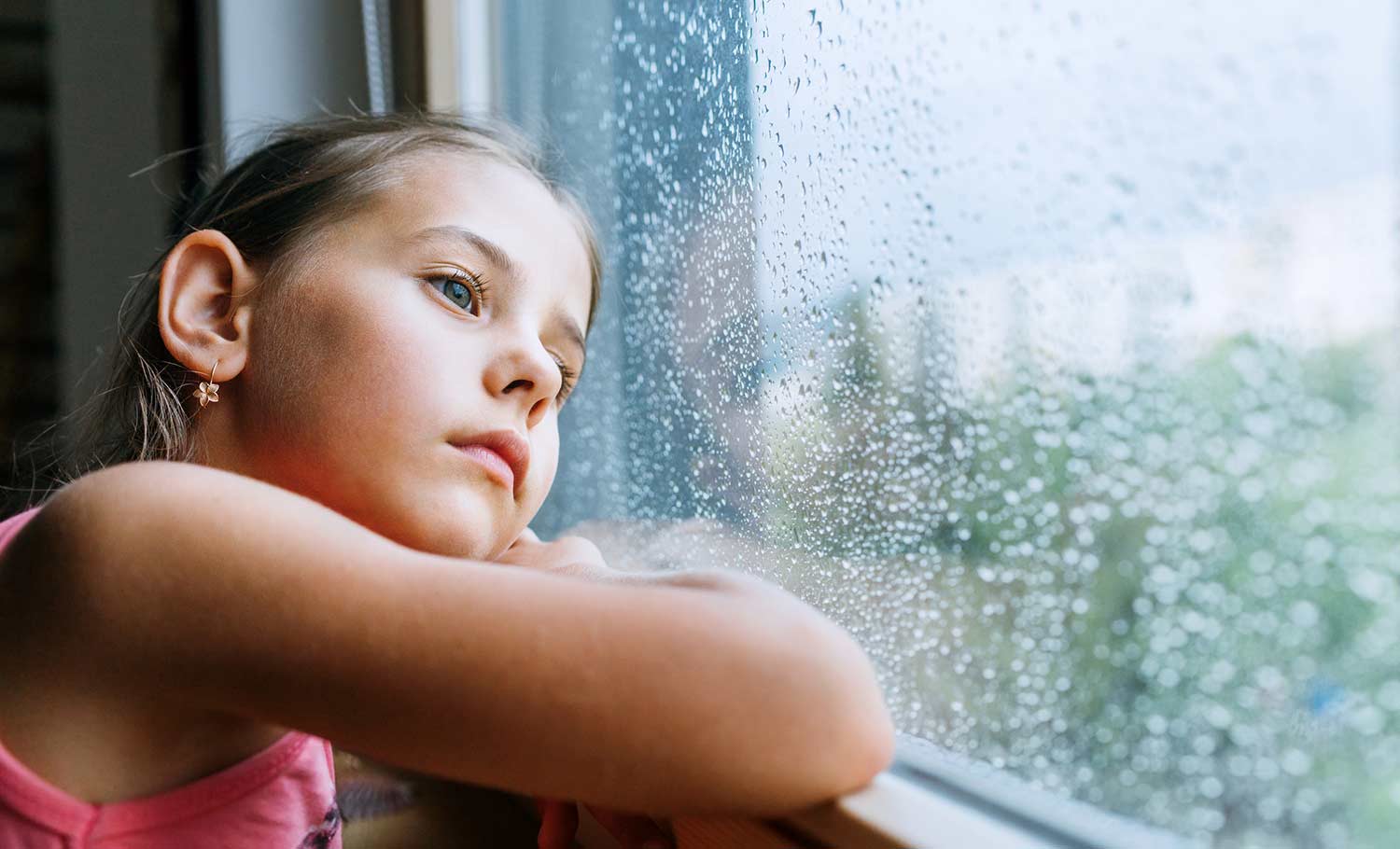
“It’s affecting children of all ages—I’ve really been surprised at how much,” Dr. Street Stephens says. “Children don’t always know how to express their emotions and how they feel; they’re still learning how to describe their emotions. That’s why, when they go to the doctor, they don’t start their visit by saying, ‘I’m anxious,’ or ‘I’m feeling upset.’ They say they have a headache or pain in their stomach. That’s why it’s so important that parents maintain doctor’s visits with kids so we can check on their social and emotional health.”
More than a Touch of the Blues
Just as wellness visits and immunizations help ensure that kids are on track developmentally and physically, mental health checkups for children and teens are vital, too. There’s an extra emphasis on mental health during wellness visits during the pandemic, Dr. Street Stephens says.
“We talk with kids about how they are coping with the pandemic and how they are doing in school, especially with the move to virtual learning,” she says. “Older children may hide their feelings to protect their parents from added stress or worry, so these visits offer an important opportunity to assess how much the pandemic is weighing on kids, emotionally, and whether they could use extra support.”

Social development during COVID-19 is a top-of-mind concern for parents and pediatricians alike. “Kids are not getting the level of social interaction they need by learning remotely, which has a great impact on their emotional well-being,” Dr. Street Stephens says. “As a result, we are seeing higher numbers of depression in kids.” One national survey found that 30% of teens have felt unhappy or depressed during the pandemic, and more than one in four have trouble sleeping.
Children and teens with preexisting mental health conditions, especially, are vulnerable due to the lack of social supports during the pandemic, from face-to-face time with counselors or aides to more limited connection with peers.
The challenge for parents is that children and teens may not have the ability to describe what they are experiencing, internally. What may seem like sullenness from their elementary school student could actually be a sign of depression. “Younger kids, especially, don’t understand why they are feeling a certain way,” says Sarah Bedingfield, LPC, a child and adolescent counselor for Frontier Health. “When they aren’t going to school as often or are on a weird schedule due to the pandemic, it’s as if the bottom has fallen out from the structure that used to be in place in their lives. They feel as if they’ve lost control of their environment. Our job, as medical professionals and as parents, is to help them regain that sense of control.”

Supercharging Support for Kids During the Pandemic
At HMG, we’re taking bold steps to help connect kids with the resources they need to feel their best, emotionally and physically, during the pandemic.
We conduct screenings during each well-child visit to evaluate whether a child is experiencing emotional or behavioral health challenges during the pandemic, using newly published guidance from the American Academy of Pediatrics. As part of these screenings, physicians not only examine how a child is coping with the social stresses of the pandemic—including disruptions in activities, sports and time spent with friends—but also whether services such as physical therapy, occupational therapy and speech therapy have been disrupted. Physicians also take a look at social determinants of health such as access to food and living conditions and pair families with community resources, where needed, to help meet families’ basic needs.
When a screening suggests that a child could benefit from counseling, HMG’s two-year partnership with Frontier Health enables the child to be evaluated by an on-site case manager during the appointment. “Our case manager, Wendi Ardito, will talk with parents or caregivers and the child and make a referral for assistance to address the child’s specific needs,” Bedingfield says. “We can let her know of the need for services, and she’ll find the program that is right for that child. Referrals happen more quickly, and the child receives highly personalized services that improve well-being.”
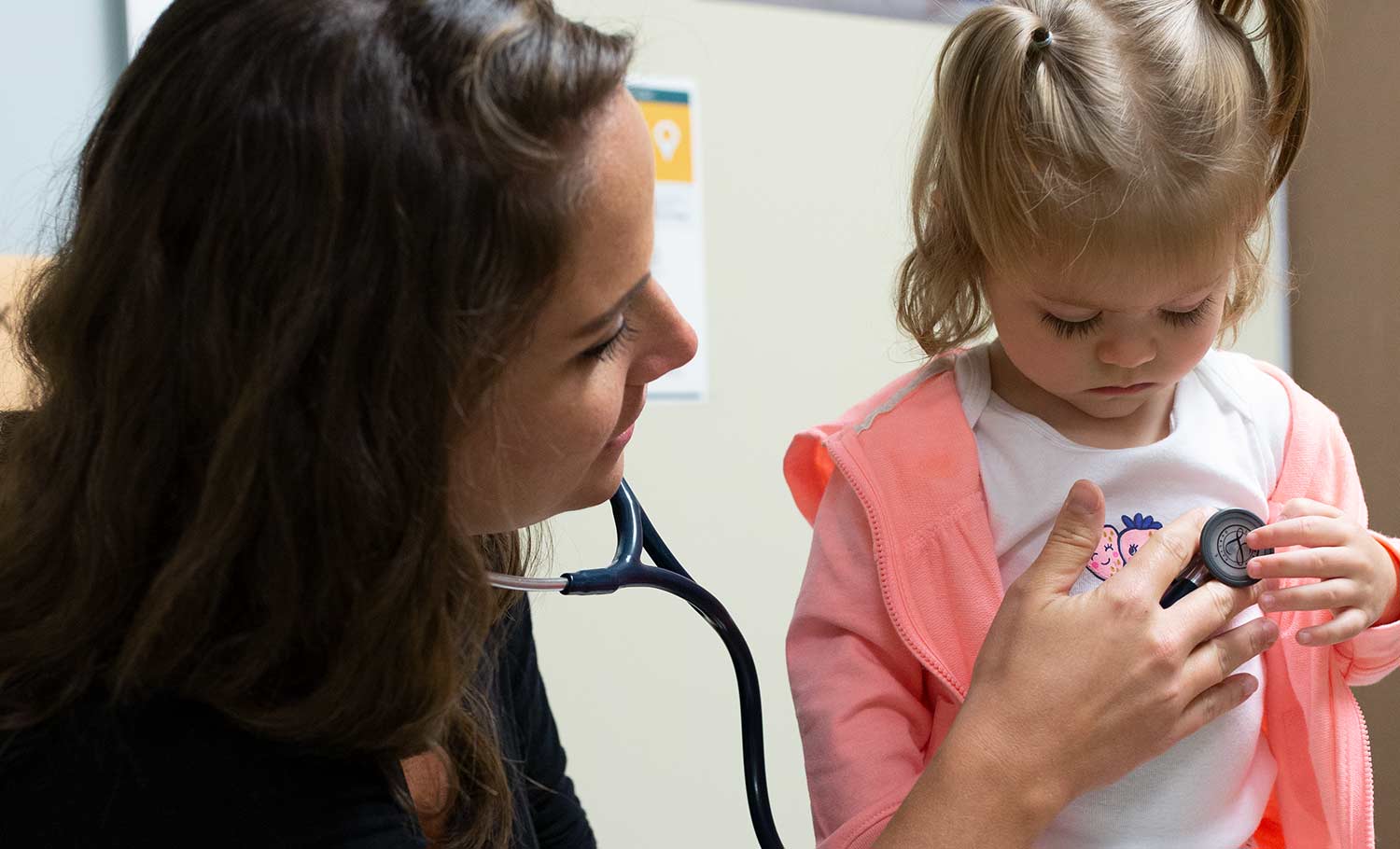
Emotional and behavioral health services can be provided in person or virtually, depending on the needs of the child and the family. “There are certain situations when the child would benefit from in-person services, such as when a child has trouble sharing feelings over the phone or doesn’t want to receive help through a computer,” Bedingfield says. “Other times, the family’s schedule may necessitate an appointment via Zoom. We also offer care via phone calls when internet connectivity is an issue.”
“Demand for these services in the Appalachian region is high,” Bedingfield says. “Through the partnership with HMG, parents across the region gain easier access to care for their children.”
Help Is Just a Phone Call Away
If you are a parent who is concerned about your child’s mental health, it’s important to reach out to your child’s pediatrician. “We can assess your child and help you make sense of how children can often express emotional distress,” Dr. Street Stephens says. “We can tell you what behaviors are developmentally appropriate for your child and when extra care might be needed. We can also assist you in finding the right resources for your child.”
“Parents can help their children weather the pandemic simply by being present with their children,” Bedingfield says.

“The very best thing that you can do as a parent is to listen, to really encourage communication at home with your child, no matter how old they are,” Bedingfield says. “Sometimes your child won’t want to talk, but it’s important to encourage them to talk with you and to let them know you are there for them. Make eye contact with your kids, and take time out to be with them. You’d be surprised at how much family mealtime helps kids right now. I’ve seen some families take mealtime a step further by having picnics in the living room every now and then. Game nights provide an element of fun that many families miss during the pandemic. Anything you can do to get family members away from their screens and engaging with each other will make a tremendous difference in your child’s outlook and your relationship with each other.”


